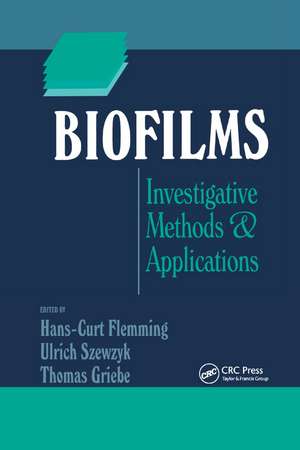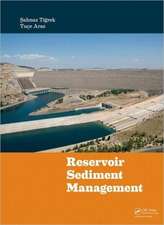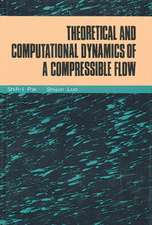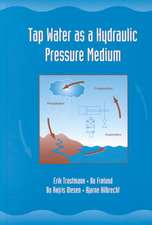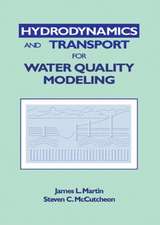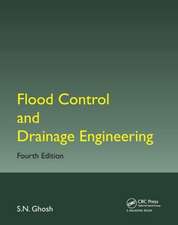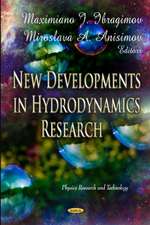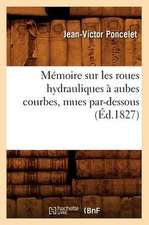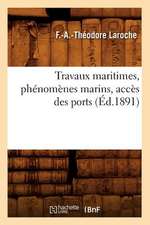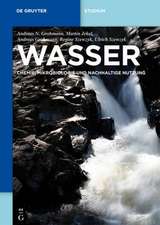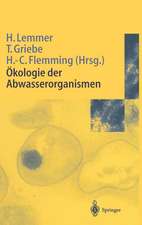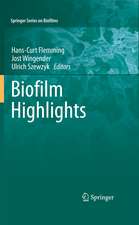Biofilms: Investigative Methods and Applications
Autor Hans-Curt Flemming, Ulrich Szewzyk, Thomas Griebeen Limba Engleză Paperback – 5 sep 2019
Biofilms: Investigative Methods and Applications provides the first in-depth assessment of current and experimental ways to study biofilms, both in sample form and in situ. It shows how sensors, microscopy, lasers, and calorimetry, among other tools, can be used to obtain data on the morphology and metabolism of biofilms. This text is the first to organize and examine the best methods for investigating biofilms. It covers culture-based methods and emerging nondestructive techniques. It also shows how they can be used to characterize biofilms in a variety of manmade settings, such as sewers, wastewater plants, and drinking water distribution systems, as well as in karsts and groundwater sources.
In clarifying the way biofilms are studied, the book offers new insights into these living films. It also applies inquiry techniques to the many problems confronting the environmental specialist-corrosion control, biofouling, and the improvement of fixed reactors in wastewater treatment. At the same time it explains technologies for the controlled growth of biofilms and shows how biofilms can be effectively monitored and subjected to quantitative analysis. The technical information in Biofilms: Investigative Methods and Applications is designed to be of use to engineers and researchers and to be helpful in the generation of electronic data.
| Toate formatele și edițiile | Preț | Express |
|---|---|---|
| Paperback (1) | 371.11 lei 6-8 săpt. | |
| CRC Press – 5 sep 2019 | 371.11 lei 6-8 săpt. | |
| Hardback (1) | 1931.10 lei 6-8 săpt. | |
| CRC Press – 23 iun 2000 | 1931.10 lei 6-8 săpt. |
Preț: 371.11 lei
Preț vechi: 500.30 lei
-26% Nou
Puncte Express: 557
Preț estimativ în valută:
71.01€ • 74.14$ • 58.77£
71.01€ • 74.14$ • 58.77£
Carte tipărită la comandă
Livrare economică 04-18 aprilie
Preluare comenzi: 021 569.72.76
Specificații
ISBN-13: 9780367398422
ISBN-10: 0367398427
Pagini: 268
Dimensiuni: 156 x 234 mm
Greutate: 0.5 kg
Ediția:1
Editura: CRC Press
Colecția CRC Press
ISBN-10: 0367398427
Pagini: 268
Dimensiuni: 156 x 234 mm
Greutate: 0.5 kg
Ediția:1
Editura: CRC Press
Colecția CRC Press
Cuprins
Preface. List of Contributors. Steps in Biofilm Sampling and Characterization in Biofouling Cases. Rotating Annular Reactors for Controlled Growth of Biofilms. Microcalorimetry for Evaluating Countermeasures against Biofouling in Water Circulation Systems. Extraction and Quantification of Extracellular Polymeric Substances from Wastewater. Cell Biomass Determination in Sewer Biofilms and a Monospecies Pseudomonas putida Biofilm. Simultaneous Morphological and Population Analyses of Environmental Biofilms. Development of a New Method to Determine the Metabolic Potential of Bacteria in Drinking Water Biofilms. Formation and Bacterial Composition of Young, Natural Biofilms Obtained from Public Bank-Filtered Drinking Water Systems. The Use of Immunological Techniques and Scanning Confocal Laser Microscopy for the Characterization of Agrobacterium tumefaciens and Pseudomonas fluorescens, Atrazine-Utilizing Biofilms. The in situ Detection of a Microbial Biofilm Community on Karst Rock Coupon in a Groundwater Habitat. Investigation of Spatial and Temporal Gradients in Fixed-Bed Biofilm Reactors for Wastewater Treatment. Quantitative Microscopy in Biofilm Studies. Confocal Laser Scanning Microscopy of Biofilms. Microelectrodes and Tube Reactors in Biofilm Research. Index.
Notă biografică
Flemming, Hans-Curt; Szewzyk, Ulrich; Griebe, Thomas
Descriere
Biofilms: Investigative Methods and Applications provides the first in-depth assessment of current and experimental ways to study biofilms, both in sample form and in situ. It shows how sensors, microscopy, lasers, and calorimetry, among other tools, can be used to obtain data on the morphology and metabolism of biofilms. This text is the first to organize and examine the best methods for investigating biofilms. It covers culture-based methods and emerging nondestructive techniques. It also shows how they can be used to characterize biofilms in a variety of manmade settings, such as sewers, wastewater plants, and drinking water distribution systems, as well as in karsts and groundwater sources.
